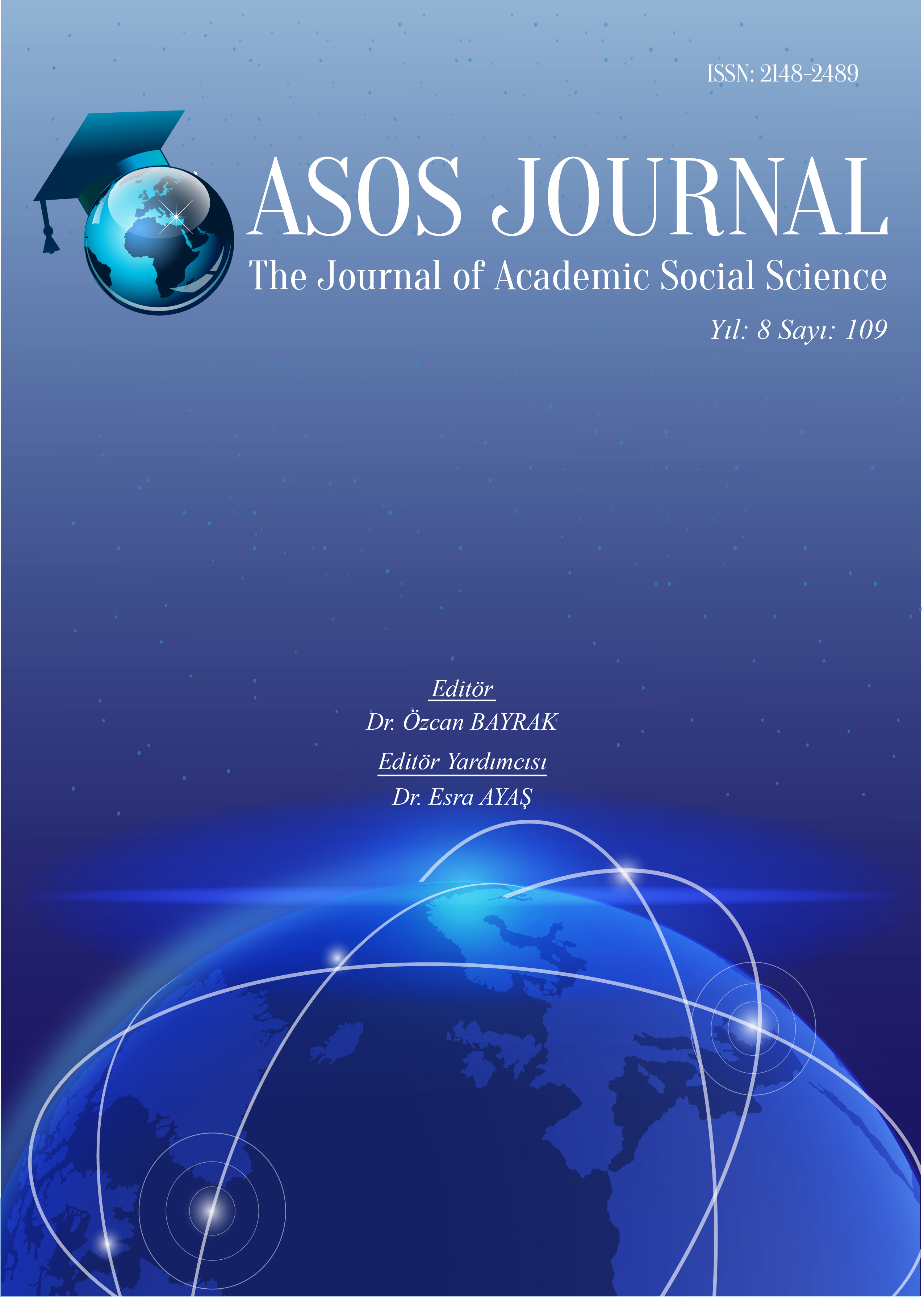Author :
Abstract
Fecr-i Ati topluluğu Batı etkisindeki Türk edebiyatının en kısa süren hareketi olarak dikkat çeker. II. Meşrutiyet sonrası yaşanan edebi boşluğu doldurmak için kurulan ve dönemin politik şartları ve edebi anlaşmazlıklar sonucu kısa sürede dağılan topluluk, Türk edebiyatı tarihinde bir girişim olarak kalır ve Milli Edebiyat hareketine zemin hazırlar. Refik Halit muhalif ve müsehzi kimliğiyle, Yakup Kadri ise sanat, edebiyat ve felsefi görüşleriyle topluluğa renk katarlar. Her iki yazar da çeşitli vesilelerle Fecr-i Ati hakkındaki düşüncelerini açıklamışlardır. Refik Halit hatıra, röportaj ve çeşitli yazılarında, Yakup Kadri de hatıralarında Fecr-i Ati topluluğu hakkında bilgi verir ve bu topluluğun dağılmasının nedenlerini açıklarlar. Bu makalede Refik Halit ve Yakup Kadri’nin görüşleri esas alınarak Fecr-i Ati topluluğunun kısa sürede dağılmasının sebepleri açıklanmaya çalışılmıştır.
Keywords
Abstract
The Fecr-i Ati group draws attention as the shortest movement of Turkish literature under the influence of the West. The group, established to fill the literary gap after the second constitutional era and dissolved in a short time as a result of the political conditions and literary conflicts, remains an initiative in the history of Turkish literature and prepares the ground for the National Literature movement. Refik Halit adds colour to the community with his opponent and sceptical identity, and Yakup Kadri with his art, literature and philosophical views. Both authors have expressed their opinions on the Fecr-i Ati community on several occasions. In his memoirs, interviews and various writings, Refik Halit gives information about the Fecr-i Ati community, and Yakup Kadri explains the reasons for the dissolution of this community in his memoirs. Based on the opinions of Refik Halit and Yakup Kadri, this study tries to explain the reasons for the demise of the Fecr-i Ati group in a short time.
Keywords
- Aktaş, Şerif (1986), Refik Halid Karay, Kültür ve Turizm Bakanlığı Yayınları, Ankara.
- Akyüz, Kenan (1995), Modern Türk edebiyatının Ana Çizgileri, İnkılap Kitapevi, İstanbul.
- Bayrak, Özcan (2016), Sorularla Yeni Türk Edebiyatı, Kesit Yayınları, İstanbul.
- Bozdoğan, Ahmet (2014-Bahar), Fecr-i Ati Topluluğu ve “Musavver Muhit” Mecmuası, TÜBAR-XXXV, s. 43-60
- Es, Hikmet Feridun (2010), Bugün de Diyorlar ki, Ötüken Neşriyat A.Ş., İstanbul.
- Karaosmanoğlu, Yakup Kadri (2013), Gençlik ve Edebiyat Hatıraları, İletişim Yayınları, İstanbul.
- Karay, Refik Halit (2011), Bir Ömür Boyunca, Haz: Yusuf Turan Günaydın, TTK Basımevi, Ankara.
- Okay, Orhan (2005), Batılılaşma Devri Türk Edebiyatı, Dergâh Yayınları, Ankara.
- Şen, Cafer, Fecr-i Ati Edebiyatı, Gazi Kitapevi, Ankara 2006.
- Ünaydın, Ruşen Eşref (2000), Diyorlar ki, Haz: Şemsettin Kutlu, T.C. Kültür Bakanlığı Yayınları,





